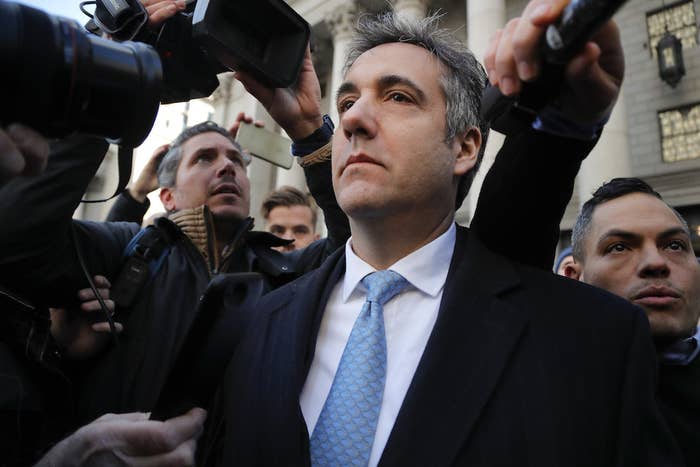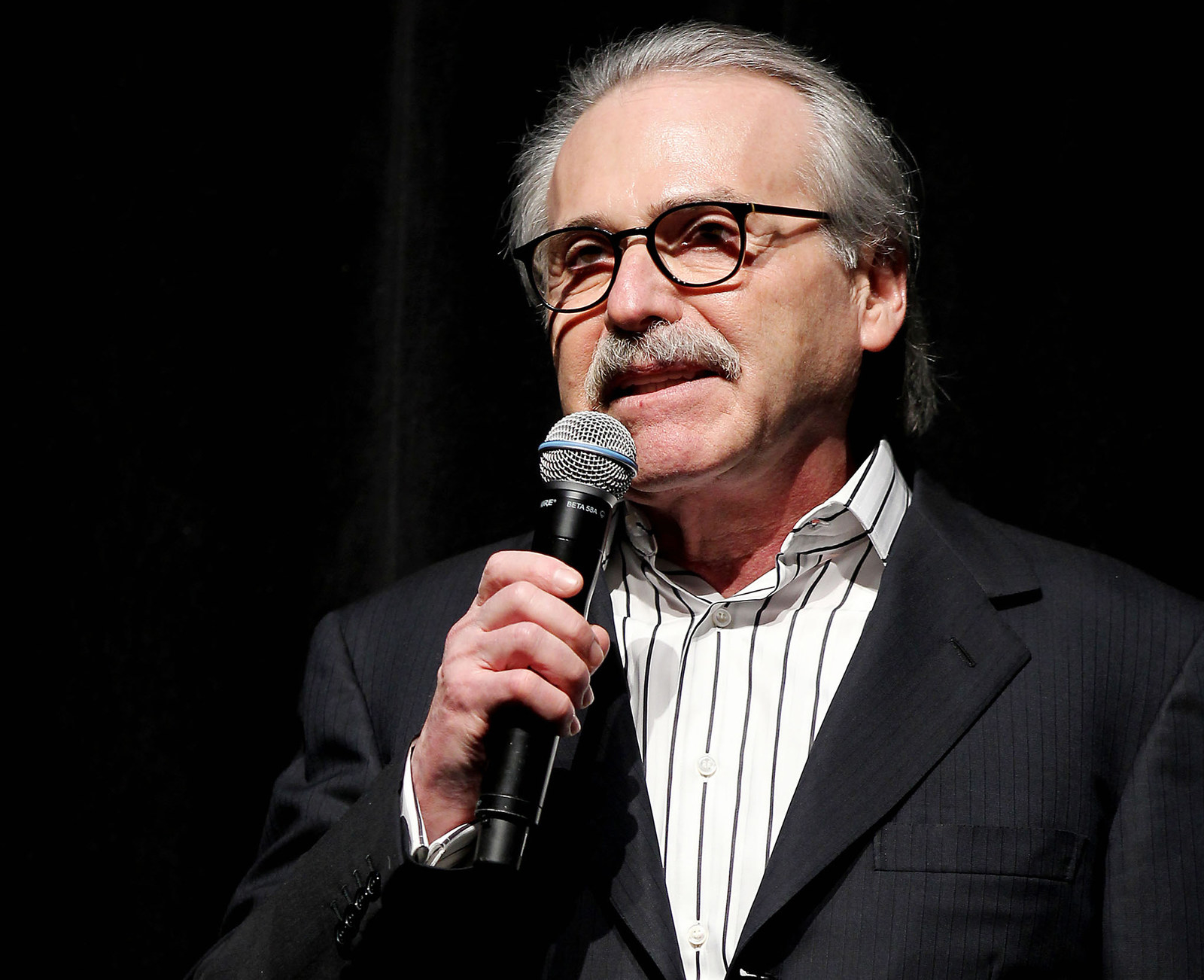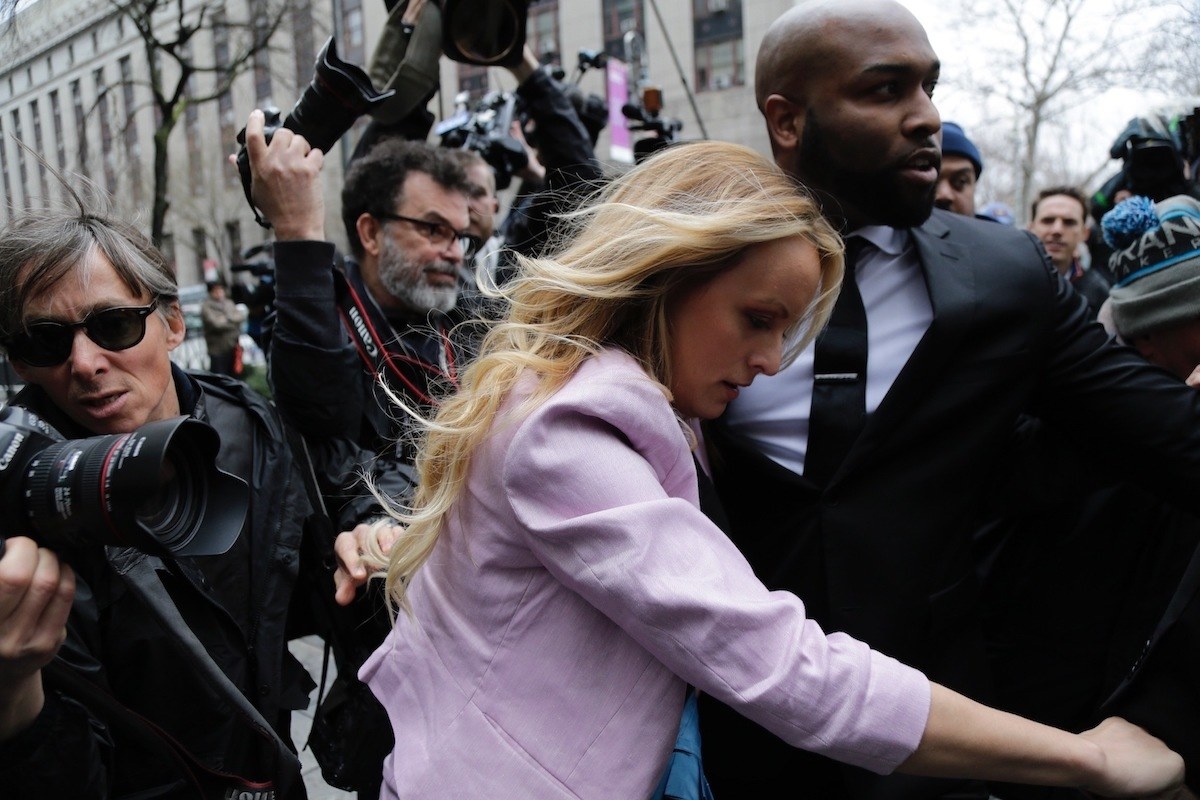
When Donald Trump’s former personal attorney Michael Cohen was sentenced this week for tax fraud and campaign finance crimes, all eyes in the newsroom of tabloid giant American Media Inc. were on their computers. The Department of Justice had just released a detailed description of how AMI executives coordinated with Cohen to kill lurid stories of extramarital affairs in order to benefit then-candidate Trump’s campaign.
“No one knew what the end result would be,” one AMI employee told BuzzFeed News on condition of anonymity because they weren’t authorized to talk to the media. “It was up on everyone’s screens, but there was a sigh of relief when we got off the hook.”
AMI may have avoided criminal charges in exchange for its cooperation with federal prosecutors, but in the process, experts say the tabloid giant ceded First Amendment protections that will force the company’s newsrooms to cooperate with the Justice Department over the next three years.
“This is a remarkable surrender of any First Amendment protections they might otherwise claim,” said Edward Wasserman, dean at the UC Berkeley Graduate School of Journalism. “It basically gives complete and unbridled discretion to the prosecutors of the DOJ to ask whatever they like and leaves AMI with no recourse but to comply.”
The non-prosecution agreement will undoubtedly change the way AMI, which owns the National Enquirer, Star, OK!, Men’s Journal, Radar Online, Us Weekly, In Touch, Life & Style, and others, does business.
Stories are now being intensely vetted, the AMI staffer said, adding that the ordeal “has made us a stronger news organization.”
“We must go through many levels with the legal department, which we weren’t required to do prior to this whole debacle,” the employee said. “It’s tougher to push stories through.”
AMI’s admission also puts President Trump closer to potential campaign finance violations than he has ever been before. The role of AMI in an alleged scheme to influence the election was laid out by the US Attorney’s Office, which said the company admitted it had made a $150,000 payment in concert with Trump’s campaign to ensure former Playboy model Karen McDougal's story of an affair never saw the light of day. The payment was part of the practice known as “catch and kill,” in which a publisher buys the rights to a story with the intent of never running it to protect someone else.
Prosecutors say Cohen was used as an intermediary by Trump’s organization to set up terms for reimbursing AMI through bogus billings. After signing off on the arrangement, AMI chief executive David Pecker allegedly told Cohen to rip up the paperwork, prosecutors allege.
Trump’s aides have disputed that the payment was an unreported in-kind corporate contribution, a violation of campaign finance law, and the president himself said Thursday that he “never directed Michael Cohen to break the law.” However, multiple outlets, including the Wall Street Journal and NBC News, reported that the other member of the campaign whom prosecutors say was at the meeting to discuss the McDougal arrangement was Trump.
Regardless, legal experts say AMI’s deal with prosecutors corroborates what Cohen admitted in court and exposes the president to greater legal risk.
Wasserman said it’s also clear that AMI executives — who had previously denied any wrongdoing — were also facing legal exposure that, in the end, proved to be untenable.
“I think they were very frightened,” he said. “I think the DOJ came down very hard on them and they were looking at the possibility of criminal prosecutions, the possibility of jail time. When the feds want you to do something and you are staring down the barrel of years of prosecutions that can sap your time and money and harm your reputation, the lawyers might have said, ‘Hey, we are not going to win this.’”
What other secrets might be uncovered during AMI’s three-year agreement with the DOJ is unclear. But former National Enquirer senior editor Jerry George, who worked at the publication for 28 years, said AMI also deployed “catch and kill” for stories involving Hollywood celebrities. There were safes in the magazine’s Los Angeles and New York offices that stored what he called “hard copy,” which often included contracts, source information, and memos, he said.
“There is still some incriminating stuff out there,” he said.
Representatives for AMI and Pecker did not respond to requests for comment.

With Pecker at the helm, AMI has in recent years been expanding its reach by quietly buying up almost all of its rivals, bringing titles like Radar Online and Us Weekly into the fold and leaving People as the only main competitor.
According to AMI, its portfolio has a combined circulation of 2.3 million and reaches 47 million people each month, which even in the digital age can mean major consequences for celebrities or political candidates that become targets.
Prior to having a near–vice grip on the industry, Pecker directed the National Enquirer to go all in for Trump during the 2016 campaign, converting the magazine from a celebrity-focused tabloid to one unabashedly heralding the “triumphs” of America’s reality TV presidential candidate.
The reign of back-to-back pro-Trump covers began in late January with headlines like “The Donald Trump Nobody Knows!," “How Trump Will Win!," “How Trump Will Win Debate!," and “Trump Tax Returns Revealed.” Fifteen of the other pre-election covers were anti–Hillary Clinton, including “Hillary Going to Jail!,” “Hillary Will Never Be President!,” and “Hillary: Corrupt! Racist! Criminal!”

Dylan Howard, editorial director of all AMI publications, told BuzzFeed News in 2017 that they were only responding to what consumers had told researchers they wanted more of.
But George, who left the National Enquirer in 2013, said he watched as the publication became more of a mouthpiece for the Trump campaign instead of focusing on investigative journalism. The publication also reportedly shared stories about Trump with Cohen for prepublication review.

In 2011, well before Trump announced his presidential bid, Cohen, his then–special counsel and executive vice president at the Trump Organization, was already working feverishly behind the scenes to squelch any salacious stories. When porn star Stormy Daniels’ story of an extramarital affair with Trump first appeared in October of that year on the website the Dirty, Cohen went on the offensive in demanding retractions. He then became very hands-on in terms of media coverage.
“He approved everything,” George said. "It was not only copy approval, or photo approval or headline approval, but they would also transmit copies of the cover to get his approval and they would take his suggestions very seriously. If he didn’t like the layout or any element of it, they would change it to please him.”
But after reportedly being subpoenaed in the spring, Pecker apparently cooled on Trump World, and AMI pivoted back to celebrity targets that sell — Angelina Jolie, Katie Holmes, Brad Pitt, Meghan Markle, Jennifer Garner, and Ben Affleck. (The past 28 covers of the National Enquirer have been devoid of anything related to the president.)
By July 31, the transition was complete. Six AMI publications published the exact same “exclusive” — “Shocking New Claim: Robert Wagner Wanted to Murder Natalie Wood’s Co-Star Warren Beatty!”
